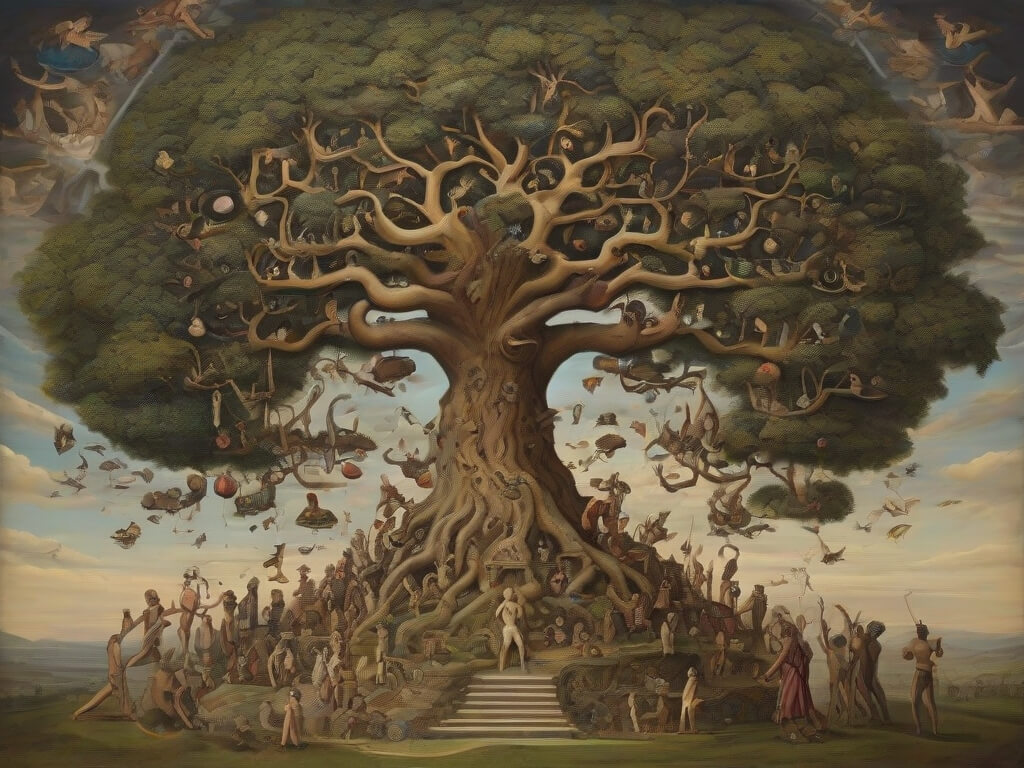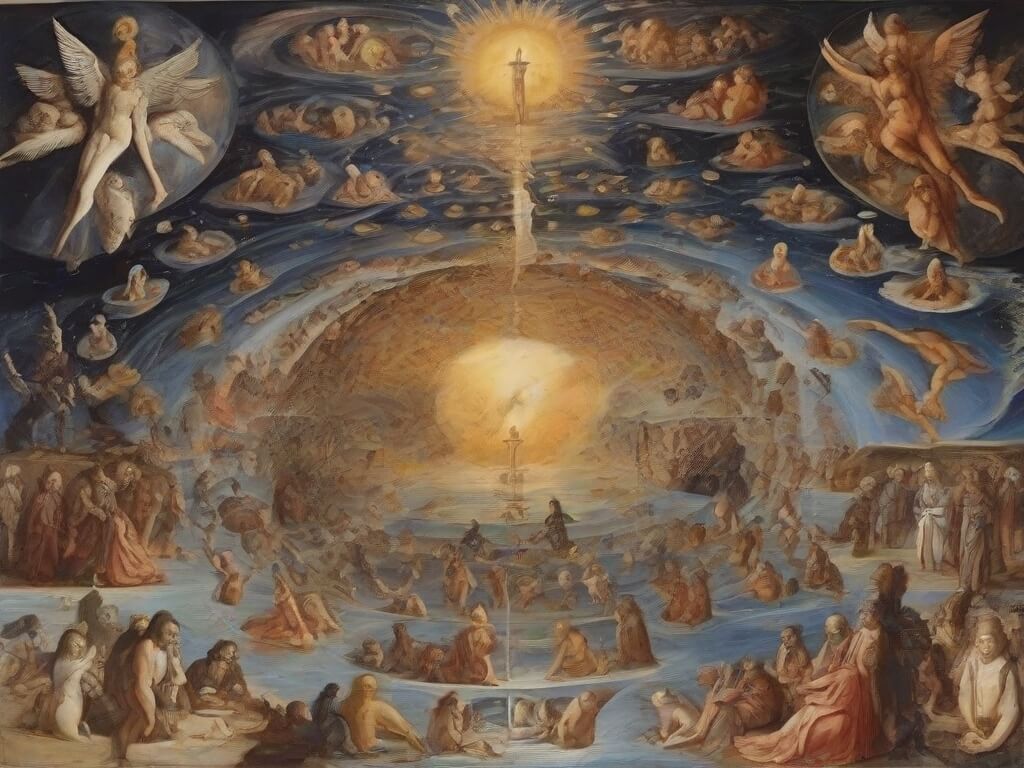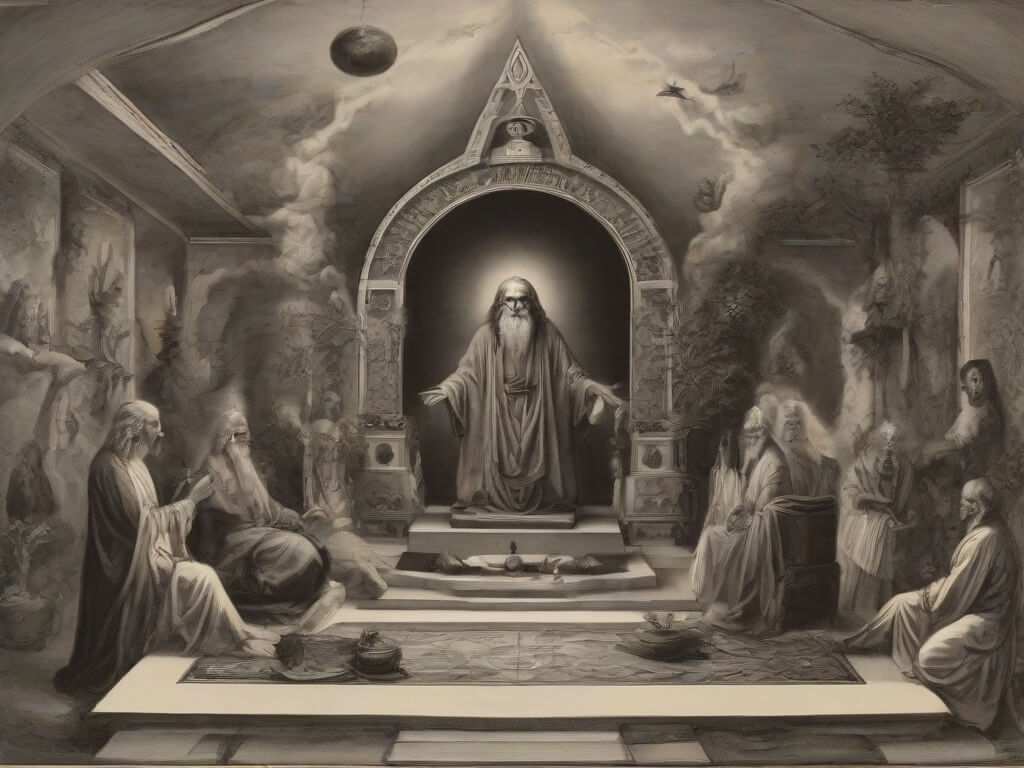Discover the essence of Theosophy – a synthesis of Eastern and Western wisdom without dogma. Explore its historical roots, fundamental principles, and how it harmoniously relates to religion, science, and philosophy.

Theosophy; is a synthesis of religion, philosophy, and science. It is an attempt to bring together for mutual enrichment the best thinking of the Eastern and Western worlds. It is not a religion, for it has no dogma, creed, or ritual.
Origins:
The name “theosophy” was first used in Alexandria in the 3d century a. d., in connection with the teachings of the Greek mysteries concerning God. Based on its Greek derivation, the word refers to the divine wisdom as it unfolds in the human spirit, not as a set of beliefs superimposed upon man. This wisdom is considered to underlie the teachings of all religions. In its present form, the word “Theosophy” came into use in the year 1875, with the founding of the Theosophical Society. However, the concepts of Theosophy have appeared in the philosophic systems of China, India, and Egypt, and in the works of the Gnostics, Neoplatonists, and Cabalists, or medieval Jewish mystics. In particular, Theosophical thought may be found in the speculative writings of the philosophers Plato, Plotinus, Apollonius of Tyana, in such mystics as Jakob Boehme and Paracelsus, as well as in the writings of the medieval mystics.
Theosophical Principles:
Theosophy postulates certain basic principles: (1) There exists an “omnipresent, eternal, boundless and immutable principle” from which the visible world arises. (2) Universes come and go, and our universe is the periodical manifestation of an immaterial reality. (3) The universe, with everything in it, is temporary compared with the eternal immutability of the One. (4) Everything in the universe, throughout all its kingdoms, is conscious of its own nature and degree. (5) The universe is not the product of chance, but is worked and guided from within. (6) The whole order of nature gives evidence of purposiveness. (7) Every individual is fundamentally identified with the universal Oversoul and evolves through cycles of reincarnation in accordance with the law of cause and effect called karma.
The process of cosmic manifestation is regarded as having two phases. The first is involution, during which billions of units of spiritual consciousness, called “monads,” emerge from the One undifferentiated Source. They become more and more deeply involved in matter in the mineral, vegetable, and animal kingdoms and, through the limitations and impacts of this condition, finally attain self-consciousness in the human kingdom. The other is evolution, during which these now self-conscious units, as humans, gradually unfold the potentials inherent in them from the beginning of the cycle, attain freedom from attachment to matter, and eventually return to the Source from which they came, but with an incalculable increase of consciousness as a result of their aeonic pilgrimage. Theosophy denies that the human spirit can ultimately be lost, because it is intrinsically eternal and indestructible. Through successive reembodiments in physical form, with accompanying emotional, mental, and psychic responses to experience, the spirit attains mastery over its vehicles, and man reaches the expression of his godhood.

Relations to Religion, Science, and Philosophy:
Theosophy examines the underlying wisdom of the various religious teachings and sees them as equally important to the whole of mankind’s development. It does not seek to convert anyone from the religion he holds, but instead attempts to explain and interpret on a rational basis the inner meanings of the creeds and ceremonies of religion.
In methods of observation and experiment, organization and hypothesis, Theosophy may be considered scientific. It makes no pretense of encompassing the myriad specializations and hypotheses of the advanced sciences. However, the ine between some scientific hypotheses and those of Theosophy grows finer and less distinguishable, although the two are expressed in different terms.
In its philosophical aspect, Theosophy postulates a logical explanation of the universe and its laws and of man’s origin, evolution, and destiny. It offers reasons for many circumstances and processes left untouched by both the credal religions and the codified sciences. It suggests that matter is the instrument of life, that thought is the creative and molding power, and that experience of both joy and suffering is the means to the growth of character and ability and the consequent attainment of spiritual power and wisdom.
Theosophy maintains that, just as the attainment of perfection is ultimately within the reach of all, there are men who have reached that goal. Among these are the Christ, the Buddha, and other great spiritual teachers and saviors, as well as some who are less well known and who, it is said, continue to work quietly and in relative obscurity for the welfare of mankind.

The Theosophical Society:
Since 1875 the concepts of Theosophy have been expounded by the Theosophical Society. The principal founders of the society were Col. Henry S. Olcott, its first president, a Civil War veteran who had a distinguished career in govermnent, agriculture, and law; Mme. Helena P. Blavatsky, a widely traveled Russian noblewoman who became a naturalized American citizen; and William Q. Judge, a New York attorney. Following Colonel Olcott, successive international presidents were Annie Besant, G. S. Arundale, C. Jinarajadasa, and in the 1970’s, N. Sri Ram. In 1882 the international headquarters of the society were established at Adyar, Madras, India. By the 1970’s there were also national organizations in more than 60 countries. The headquarters of the Theosophical Society in America, with 151 branches in major cities, is at Wheaton, III., where there is a Reference and Lending Library. The Society publishes a monthly magazine called The American Theosophist.
The Theosophical Society has three objects: (1) to form a nucleus of the Universal Brotherhood of Humanity without distinction of race, creed, sex, caste, or color; (2) to encourage the study of comparative religion, philosophy, and science; (3) to investigate unexplained laws of nature and the powers latent in man. The society’s policy is one of complete freedom of individual search and belief.